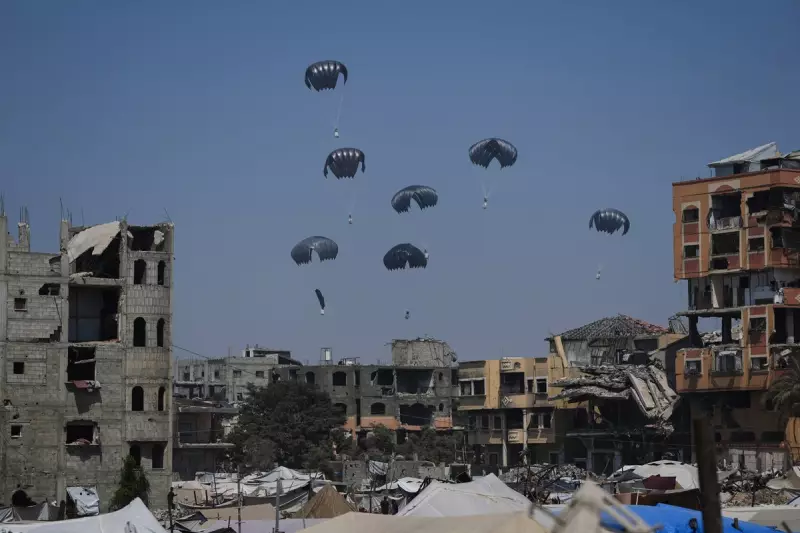
As the humanitarian crisis in Gaza escalates, international organisations are turning to desperate measures to deliver aid to civilians trapped in the conflict. With land routes severely restricted, airdrops have become a last resort for agencies like the Red Cross and Médecins Sans Frontières (MSF).
Blocked Borders Force Risky Airdrops
Humanitarian groups report that traditional aid delivery methods through land crossings have been largely inaccessible due to ongoing military operations and border closures. This has left hundreds of thousands of Palestinians without access to food, medical supplies, and other essentials.
Medical Supplies Running Dangerously Low
MSF has warned that hospitals in Gaza are operating at minimal capacity, with critical shortages of:
- Life-saving medications
- Surgical equipment
- Fuel for generators
- Basic medical supplies
The situation has become so dire that some medical procedures are being performed without anaesthesia or proper sterilization.
International Response and Challenges
While several nations have participated in aid airdrops, humanitarian organisations stress that this method is:
- Extremely expensive compared to land transport
- Limited in capacity
- Potentially dangerous for civilians below
- Unable to deliver certain types of aid
The Red Cross has called for immediate humanitarian corridors to allow safe passage of aid through land routes, describing the current situation as "untenable" for civilian populations.
Growing Fears of Widespread Starvation
UN agencies report that malnutrition rates, particularly among children, have reached catastrophic levels in some areas of Gaza. Without immediate and sustained access to food supplies, experts warn of potential famine conditions developing in the coming weeks.
The international community continues to push for a ceasefire agreement that would allow proper humanitarian access, but diplomatic efforts have so far failed to produce lasting results.





